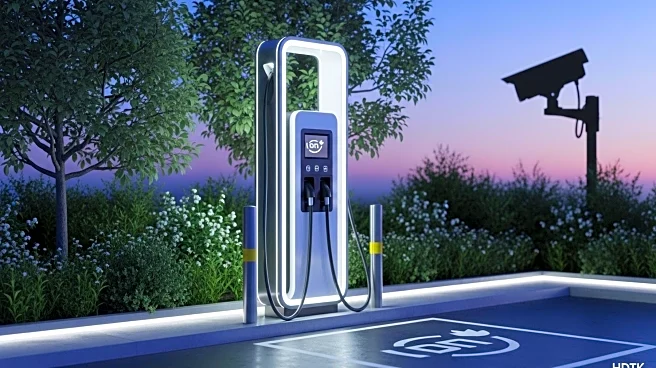What is the story about?
What's Happening?
China's rapid advancement in the electric vehicle (EV) sector is raising national security concerns for the United States. China has established a vertically integrated EV industry, dominating production, supply chains, and technologies crucial for future military and industrial applications. This dominance extends beyond vehicles to include batteries, AI navigation, and robotics, which are pivotal for future technological and military advancements. The U.S. is struggling to keep pace, with only modest growth in EV sales compared to China's significant market share. The situation is exacerbated by China's control over rare earth minerals and battery production, which are essential for EV manufacturing.
Why It's Important?
China's lead in the EV sector poses a strategic challenge to the U.S., potentially impacting its industrial base and technological edge. The U.S. risks losing its competitive advantage in critical technologies that underpin both economic growth and national security. The reliance on foreign supply chains for essential components could make the U.S. vulnerable to geopolitical pressures. Furthermore, the shift towards EVs is not just about transportation but also about maintaining industrial and military supremacy. If the U.S. fails to invest in and develop its EV capabilities, it could face significant economic and security repercussions.
What's Next?
The U.S. needs to accelerate its investment in EV infrastructure and technology to close the gap with China. This includes fostering domestic production of EV components and reducing dependency on foreign supply chains. The Biden administration has announced significant investments in domestic EV production, but policy shifts under President Trump have created uncertainty. The U.S. must also address regulatory and trade barriers to enhance its competitiveness in the global EV market. Failure to act could result in the U.S. ceding its industrial leadership to China, with long-term implications for national security and economic stability.
Beyond the Headlines
The EV race highlights broader geopolitical dynamics, where technological leadership translates into military and economic power. China's strategy of integrating commercial and military technologies could give it an edge in future conflicts. The U.S. must consider the dual-use nature of EV technologies and their implications for national defense. Additionally, the transition to EVs could reshape the U.S. labor market, requiring new skills and potentially leading to job displacement in traditional automotive sectors.

















